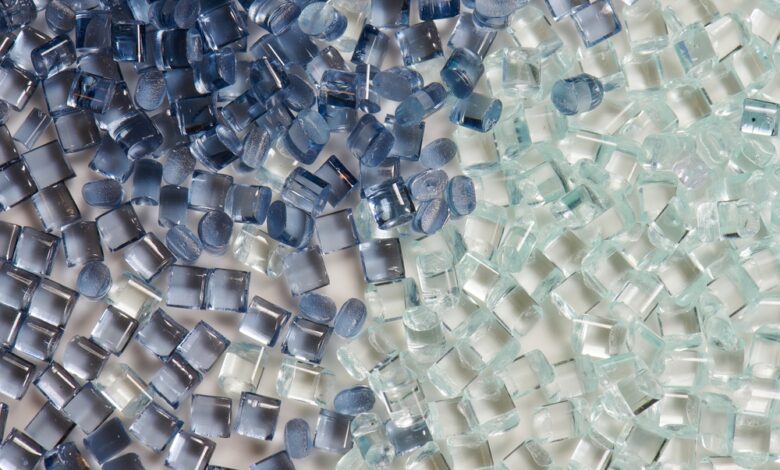How Is Resin Used in the Manufacturing of Plastics and Polymers?

A curious young engineer walked through a busy plastic factory, fascinated by the machinery and products being made. Noticing how diverse the items were, they wondered aloud, “What makes all these different plastic products possible?” A seasoned worker nearby, hearing the question, explained, “It’s resin that plays a key role in creating these plastics and polymers.” Intrigued, the engineer listened eagerly as the worker began to explain how resin is used in the manufacturing process, transforming raw materials into the plastic products we use every day. The worker also mentioned the importance of a reliable Chemical Supplier for sourcing quality resin, highlighting the intricate supply chain behind the scenes.
What Types of Resin Are Commonly Used in Plastic Manufacturing?
Resins, as the building blocks of plastics and polymers, come in various types, each with unique properties and applications. Let’s explore some commonly used resins in plastic manufacturing.
Polyethylene (PE)
Known for its versatility, polyethylene is used in packaging, containers, and household products due to its flexibility and durability. PE’s applications range from plastic bags and films to bottles and toys. Its chemical resistance and ease of processing make it a preferred material for a wide variety of consumer and industrial products.
Polypropylene (PP)
Polypropylene is valued for its strength, chemical resistance, and lightweight properties, making it ideal for automotive parts, textiles, and medical devices. PP is often used in the production of car bumpers, upholstery, and surgical instruments. Its high melting point and fatigue resistance also make it suitable for applications requiring sterilization.
Polyvinyl Chloride (PVC)
PVC is used in construction materials, pipes, and electrical insulation due to its durability and resistance to environmental degradation. It is commonly found in building profiles, plumbing systems, and cable coatings. PVC’s ability to be formulated with various additives enhances its suitability for a wide range of applications, including flooring and signage.
Polystyrene (PS)
Polystyrene is widely used in packaging, insulation, and disposable products for its rigidity and thermal insulation properties. It is commonly seen in foam cups, food containers, and thermal insulation boards. PS can be easily molded into various shapes, making it a popular choice for consumer goods and protective packaging.
Polyethylene Terephthalate (PET)
PET is commonly used in beverage bottles and food packaging due to its excellent barrier properties and recyclability. It is favored for its strength, transparency, and resistance to moisture and gas. PET’s lightweight and recyclable nature make it a sustainable option for packaging, contributing to its widespread use in the food and beverage industry.
How Is Resin Transformed into Plastic Products?
The transformation of resin into plastic products involves several key steps. Let’s explore the process in detail.
- Polymerization: The process begins with polymerization, where monomers are chemically bonded to form long polymer chains, creating the base resin.
- Compounding: In compounding, the base resin is mixed with additives, fillers, and colorants to enhance its properties and meet specific application requirements.
- Molding and Extrusion: The compounded resin is then melted and shaped into the desired product using molding (injection, blow, or compression) or extrusion techniques.
- Cooling and Solidification: Once shaped, the plastic product is cooled and solidified, ensuring it retains its intended form and properties.
- Finishing: The final step involves finishing processes, such as trimming, surface treatment, and assembly, to achieve the required product specifications.
What Are the Applications of Resin-Based Plastics and Polymers?
Resin-based plastics and polymers have a wide range of applications across various industries. Here are some key uses.
- Packaging: Resins like PET and PE are used in food and beverage packaging due to their strength, transparency, and barrier properties.
- Automotive: Polypropylene and PVC are used in automotive components for their lightweight, durability, and resistance to chemicals and heat.
- Construction: PVC and polystyrene are utilized in pipes, insulation, and building materials for their robustness and longevity.
- Healthcare: Polypropylene and PE are used in medical devices, packaging, and disposables for their sterility and safety.
- Consumer Goods: Resins are used in a wide range of consumer products, including toys, household items, and electronics, for their versatility and performance.
What Are the Advantages of Using Resin in Plastic Manufacturing?
Using resin in plastic manufacturing offers several benefits, making it a preferred choice for many industries. Let’s explore these advantages.
- Versatility: Resins can be engineered to meet specific requirements, offering flexibility in terms of properties, shapes, and applications.
- Cost-Effectiveness: The production of resin-based plastics is generally cost-effective, making them accessible for mass production and a wide range of applications.
- Durability: Resin-based plastics offer excellent durability, resistance to wear and tear, and a long lifespan, ensuring reliable performance.
- Lightweight: Plastics made from resins are lightweight, reducing transportation costs and enhancing ease of use in various applications.
- Recyclability: Many resin-based plastics, such as PET, are recyclable, contributing to sustainable practices and reducing environmental impact.
What Resin Products Does Avon Commercial Offer to Support Manufacturing Needs?
As a leading resin supplier in Pakistan, Avon Commercial provides a comprehensive range of resin products tailored to meet diverse manufacturing needs. Here are some key offerings:
- High-Density Polyethylene (HDPE): Known for its strength and durability, HDPE is used in containers, pipes, and industrial applications.
- Low-Density Polyethylene (LDPE): LDPE offers flexibility and is used in film applications, packaging, and coatings.
- Polypropylene (PP): Polypropylene is valued for its toughness and resistance to heat, chemicals, and fatigue, suitable for automotive and consumer goods.
- Polyvinyl Chloride (PVC): PVC is essential for construction materials, electrical insulation, and medical devices, providing durability and versatility.
- Polyethylene Terephthalate (PET): PET is widely used in packaging, especially for beverages and food products, due to its strength and recyclability.
How Are Advances in Resin Technology Shaping the Future of Plastic Manufacturing?
Innovations in resin technology are driving the development of advanced plastics and polymers with enhanced properties and sustainability. Let’s explore some of these advancements.
- Bio-Based Resins: The development of bio-based resins from renewable resources offers a sustainable alternative to traditional petrochemical-based resins, reducing environmental impact.
- High-Performance Polymers: Advances in polymer science are leading to the creation of high-performance resins with improved strength, thermal stability, and chemical resistance, expanding their applications.
- Recyclable and Compostable Resins: Innovations in resin technology are focused on creating recyclable and compostable plastics, addressing waste management challenges and promoting a circular economy.
- Nanocomposites: The integration of nanotechnology in resin production is enhancing the mechanical and barrier properties of plastics, making them suitable for advanced applications in aerospace, automotive, and electronics.
Wrap-up:
In conclusion, resin plays a crucial role in the manufacturing of plastics and polymers, offering versatility, cost-effectiveness, and durability. From packaging to automotive and healthcare applications, resin-based products are integral to modern life. By partnering with leading resin suppliers in Pakistan, such as Avon Commercial, manufacturers can access high-quality resin products that meet their specific needs and contribute to sustainable practices. Embrace the potential of resin technology and explore the endless possibilities it offers for innovation and growth in the manufacturing sector.
Visit here for more informative blogs


